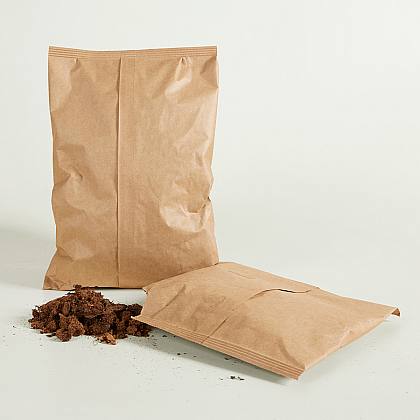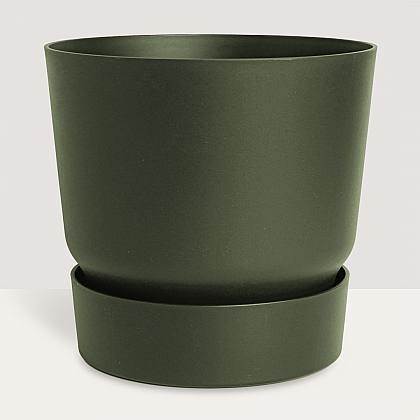Pest Alert: Devastating Aphids and Mealybugs Unleashed
Are you struggling to keep your plants healthy? Notice sticky leaves or black residue? You may have a common garden pest: aphids and mealybugs. These insects can harm your plants by sucking sap and stunting growth. But don't worry, effective control methods exist.

Are you struggling to keep your plants healthy? Notice sticky leaves or black residue? You may have a common garden pest: aphids and mealybugs. These insects can harm your plants by sucking sap and stunting growth. But don't worry, effective control methods exist.
In this article, we'll explore aphids and mealybugs, their effects, and provide natural predators and alternatives for control. From releasing ladybugs to homemade sprays, we'll guide you in defending your garden.
Early detection and swift action are vital, so let's protect your plants from these devastating pests.
Identification of Aphids and Mealybugs
To properly identify aphids and mealybugs, you need to familiarize yourself with their distinguishing characteristics.
Aphids come in various colors, such as green, orange, black, brown, white, gray, yellow, red, and pinkish. They have an oblong shape, wider at the base, and can have wings or be wingless.
On the other hand, mealybugs move slower than aphids and can be found on every part of the plant, including the roots. They leave behind a white cottony substance, which is their trail, and prefer to hide in the nodes and crevices of new growth.
Understanding these differences in their appearance and behavior will help you accurately identify and differentiate between aphids and mealybugs. Additionally, it's essential to be aware of the common plant species affected by these pests and the variations in their life cycles.
Signs of Infestation
Look for these signs to determine if your plants are infested with aphids and mealybugs. These pests can have a significant impact on plant growth and productivity.
One telltale sign is sticky leaves, caused by the sugary substance secreted by the pests. Another indication is the development of sooty mold on the leaves, resulting from the excreted sugar. You may also notice ants on the plants, as they're attracted to the sweet substance but don't harm the plant.
Infestations can spread quickly, so it's crucial to take early control measures. Integrated pest management strategies, such as releasing predators and using natural controls like horticultural oil and insecticidal soap, can provide long-term control for these devastating pests.
Potential Damage to Plants
If your plants are infested with aphids and mealybugs, the potential damage they can cause is significant. These pests weaken plants by sucking sap and stunting growth. The sugary substance they secrete can lead to sticky leaves and the development of sooty mold.
While ants may be attracted to the sweet substance, they don't harm the plant. Infestations can spread quickly, making early control measures crucial.
The potential long-term effects of aphids and mealybugs on plants can be severe, hindering the plant's recovery and causing damage. This can have an economic impact on agricultural crops and ornamental plants.
It's important to implement effective control methods to prevent further damage and protect plant health.
Early Control Measures
Implementing early control measures is crucial in managing the infestation of aphids and mealybugs, as they can quickly spread and cause significant damage to plants. To effectively control these pests, it's important to implement the following measures:
Early detection methods: Regularly inspect your plants for signs of aphids and mealybugs, such as sticky leaves, sooty mold, and the presence of ants. Act quickly upon identification to prevent the infestation from spreading.
Integrated pest management strategies: Adopt a holistic approach to pest control by combining various methods. Release natural predators like ladybugs and lacewings to feed on the pests. Use water sprays to physically remove the pests and their eggs. Employ natural controls such as horticultural oil, insecticidal soap, and neem oil. Experiment with homemade sprays to find the most effective one.
Natural Predators for Pest Control
To effectively control aphids and mealybugs, you can enlist the help of natural predators. Biological control methods, such as using natural enemies to manage pest populations, are an integral part of integrated pest management. Ladybugs and lacewings are common predators that feed on aphids and mealybugs, effectively reducing their numbers. By releasing these natural predators into your garden, you can establish a balance between pests and beneficial insects.
Additionally, natural pest sprays made from garlic, onion, and cayenne pepper can be used as alternatives for controlling severe infestations. Regularly monitoring your plants and manually removing pests, such as scraping off mealybugs, can also help control their populations.
It's important to maintain plant health and avoid stress to prevent infestations in the first place.
Water Spraying Technique
Water Spraying Technique
Spray water directly onto the infested plants to effectively control aphids and mealybugs. This technique offers several benefits for pest control:
Environmentally friendly: Water spraying is a natural and non-toxic method, making it safe for plants, animals, and the environment. Unlike chemical pesticides, it doesn't leave harmful residues on the plants.
Physical removal: The force of the water spray dislodges aphids and mealybugs from the plant surfaces, effectively removing them. This method is particularly useful for small infestations or early-stage pest control.
Comparative advantage: Compared to other control methods like chemical pesticides or natural predators, water spraying is inexpensive and readily available. It can be easily implemented by anyone, even without specialized equipment.
When using water spraying, ensure that the water pressure is adequate to dislodge the pests without damaging the plants. Repeat the process as needed to maintain control over the infestation. Remember to target the undersides of leaves and other hidden areas where aphids and mealybugs tend to hide.
Homemade Spray Recipes
Continue controlling aphids and mealybugs by exploring homemade spray recipes. Using essential oils, homemade sprays can be effective against these pests. Additionally, vinegar-based sprays have shown promise in controlling aphids and mealybugs. Experimenting with different homemade sprays can help you find the most effective one for your garden.
To help you get started, here is a table showcasing five homemade spray recipes:
| Spray Recipe | Ingredients |
|---|---|
| Essential Oil Spray | 1 teaspoon of essential oil (e.g., peppermint) |
| 1 quart of water | |
| 1 teaspoon of mild dish soap | |
| Vinegar Spray | 1 part vinegar |
| 3 parts water | |
| 1 teaspoon of mild dish soap | |
| Neem Oil Spray | 2 tablespoons of neem oil |
| 1 quart of water | |
| 1 teaspoon of mild dish soap | |
| Garlic Spray | 4 cloves of garlic, minced |
| 1 quart of water | |
| 1 teaspoon of mild dish soap | |
| Cayenne Pepper Spray | 1 teaspoon of cayenne pepper |
| 1 quart of water | |
| 1 teaspoon of mild dish soap |
Remember to test these sprays on a small area of your plants before applying them more broadly. Apply the spray directly to the pests and affected areas, ensuring thorough coverage. Repeat the application as needed to maintain control over aphids and mealybugs. Homemade sprays can be a cost-effective and environmentally friendly solution to combat these destructive pests.
Use of Horticultural Oil and Insecticidal Soap
To effectively control aphids and mealybugs in your garden, you can utilize horticultural oil and insecticidal soap. These two products have been proven to be highly effective in controlling these pests.
Here is a comparison between horticultural oil and insecticidal soap for controlling aphids and mealybugs:
Effectiveness: Both horticultural oil and insecticidal soap are effective in controlling aphids and mealybugs. They work by suffocating the pests and disrupting their cell membranes, leading to their death.
Residual effect: Horticultural oil provides a longer residual effect compared to insecticidal soap. It forms a thin film on the plant surface, which continues to suffocate and kill the pests for a longer period of time.
Application: Horticultural oil is usually applied as a spray, while insecticidal soap can be applied as a spray or used as a soil drench. Both products should be applied thoroughly, covering all affected parts of the plant.
Neem Oil as an Alternative Control Method
You can also consider using neem oil as an alternative control method for aphids and mealybugs. Neem oil is derived from the seeds of the neem tree (Azadirachta indica) and has been used for centuries as a natural pest control solution. It contains compounds that disrupt the feeding and reproductive systems of insects, making it an effective option for managing aphids and mealybugs.
When comparing neem oil to other natural alternatives, it has both pros and cons. Neem oil is biodegradable and non-toxic to humans and pets, making it an environmentally friendly choice. It also has a broad spectrum of activity, meaning it can control a wide range of pests. However, neem oil may take longer to show results compared to chemical pesticides, and it may require repeated applications for effective control. Additionally, some plants may be sensitive to neem oil, so it's important to test it on a small area first.
Here is a table highlighting the pros and cons of neem oil for pest control:
| Pros | Cons |
|---|---|
| Biodegradable and non-toxic | Requires repeated applications |
| Broad spectrum of activity | May take longer to show results |
| Environmentally friendly | Some plants may be sensitive to neem oil |
Preventive Measures to Avoid Infestations
To prevent infestations of aphids and mealybugs, it's important to implement preventive measures in your garden. Here are three effective strategies to keep these pests at bay:
Planting companion plants: Certain plants, such as marigolds, chives, and garlic, naturally repel aphids and mealybugs. Intercropping these companion plants with your susceptible crops creates a barrier that deters the pests from infesting your plants.
Implementing cultural practices: Good garden hygiene is crucial in preventing infestations. Regularly remove weeds, fallen leaves, and debris, as these can harbor pests. Also, be mindful of over-fertilization, as excessive nitrogen can attract aphids. Additionally, practice crop rotation to disrupt the pest's life cycle and reduce their population.
Attracting beneficial insects: Encourage the presence of natural predators, such as ladybugs, lacewings, and hoverflies, in your garden. Planting nectar-rich flowers, like daisies and yarrow, will attract these beneficial insects, which feed on aphids and mealybugs.
In conclusion, identifying and addressing aphids and mealybugs early on is essential for maintaining the health and vitality of your plants. By utilizing natural predators, homemade sprays, horticultural oil, and neem oil, you can effectively control these pests and prevent further damage.
Implementing preventive measures is also crucial in avoiding infestations. With swift action and the right methods, you can successfully defend your garden against the devastating impact of aphids and mealybugs.


